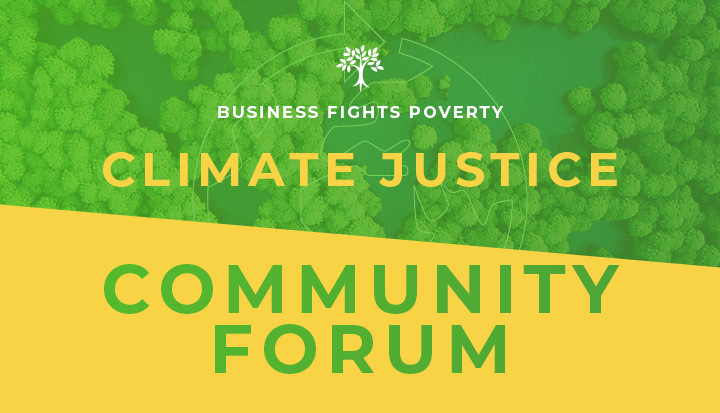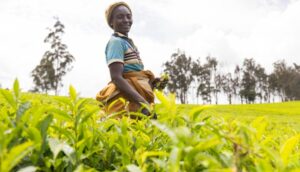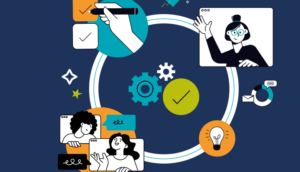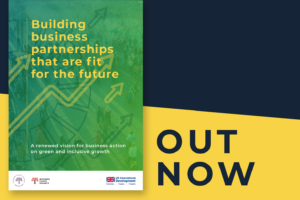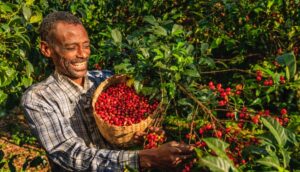As part of Business Fights Poverty NYC Online 2020, Business Fights Poverty and Mars are convening a webinar and online peer discussion to explore the role of industry-led collaborative initiatives in addressing poverty in supply chains. The webinar will take place on Thursday, 24 September at 8.30 – 9.30am EDT / 1.30 – 2.30pm BST, followed by 30 minutes Peer Discussion.
Register to attend.
With 10 years left to achieve the United Nation’s Sustainable Development Goal 1 – no poverty – more than 730 million people remain below the World Bank poverty line, and approximately two-thirds of them work in agriculture. Now, for the first time since 1998, poverty is increasing as the COVID-19 crisis has exposed and exacerbated deep systemic fragilities in global supply chains. This year alone, an estimated 71 – 100 million people are expected to fall into extreme poverty, wiping out gains made since 2017.
Corporations with international supply chains are well-placed to take action , due to their extensive networks – with suppliers, other companies within and across sectors, governments, and partners in the not-for-profit sector. But what specifically can be done to leverage these powerful networks alongside core business assets? How can we provide a step up for people who live in or at the edge of poverty, even as they create value through international supply chains?
In this upcoming online event, Mars, AB InBev, Oxfam and UNDP will share insights from their establishment of The Farmer Income Lab, a collaborative “think-do-tank”, that aims to ask the right questions, create solutions and inspire action to build global supply chains that work for farmers and for business.
This article provides an introduction to the founding and initial insights of the Farmer Income Lab, which will be further explored in the online session.
Why was the Farmer Income Lab established?
In order to ensure the continuity and availability of raw materials that are essential to the global agricultural and food industry, it is imperative that we meaningfully increase farmer incomes and build inclusive, resilient supply chains. Unfortunately, farmers’ ability to rise out of poverty is constrained by factors such as the number of members in their household, external financial shocks, norms surrounding gender roles, financial illiteracy, digital exclusion and discrimination due to ethnicity and/or socioeconomic status.
Although there have been billions of dollars of investment from across the industry, efforts to address these challenges and increase farmer income have had limited results. There is a lack of alignment on which interventions work best and what roles stakeholders should play, hindering progress toward successful corporate and collective action.
To better understand the barriers to decent farmer income and scale the interventions that work, Mars established The Farmer Income Lab (the Lab) in 2017. As an industry-led collective, The Farmer Income Lab has brought together like-minded businesses to identify successful approaches, generating insights from within its own supply chains in developing countries. In order to deliver shared impact, this requires a deep level of transparency, pre-competitive collaboration and shared accountability.
Through this work, the Lab aims to develop an evidence base of what works that is comparable across commodities, countries and communities. These deeper insights will help to accelerate collective action, providing transformative solutions to develop scalable sourcing models, tools and procurement practices, and ultimately informing business strategies and investments.
Insights from The Farmer Income Lab
Through a literature review, a series of in-depth stakeholder dialogues, and a varied compilation of case studies, the Lab has already made progress in establishing what is working in real-world situations.
In 2019, preliminary insights from the Farmer Income Lab’s work were published in an article in the Stanford Social Innovation Review, titled “Boosting Farmer Incomes in Agricultural Supply Chains”. It observed that whilst many programs aim to boost incomes through gains in crop productivity, the potential for creating deeper change lies in engaging three key strategies:
- Strengthening the market position of smallholder farmers through building their negotiating power and ability to choose when to sell their products, and to whom. This could include building and strengthening farmers organizations, directly connecting farmers to buyers, working through long-term contracts, and providing credit services.
- Designing innovative business models to benefit farmers, as well as those at the top of the value chain. This includes redesigning purchasing practices, connecting farmers to markets and stabilizing incomes through premium payments linked to transparent contracts that allow farmers to make a decent profit. There is also scope for farmers to diversify their business to offer services and value-added products.
- Developing opportunities in domestic markets. Many developing economies are now growing markets in themselves, with modern food supply chains. Enabling smallholder farmers to take advantage of domestic opportunities can help stabilize their businesses and create resilience for international supply chains, too.
Above all, these strategies demonstrate the importance of putting farmers at the center of business practices and making fundamental shifts in the way business operates. From procurement practices to the investments made to improve agricultural practices, a concerted and combined effort is required to meet SDG 1.
How Can I Find Out More?
Please join us for our webinar on Thursday, 24 September at 8.30 – 9.30am EDT / 1.30 – 2.30pm BST, followed by 30 minutes Peer Discussion.
Panellists will share some of their experiences of collaborating in the Farmer Income Lab and ideas on:
- Redesigning pre-competitive partnerships by creating value through: Shared Accountability, Shared Investment for Shared Impact
- Poverty hotspot and COVID-19 mapping insights
- Building a pipeline of action-oriented learning partners that bridge the gap in income and inequality.
This session will address the following questions:
- How can businesses effectively play a role to address the poverty affecting millions of people who work in global supply chains?
- How can businesses be more agile and accountable, balancing their drive for efficiency with the demonstrated need for resiliency throughout their supply chains?
- And how can partners such as governments, civil society, and public donors effectively engage in and strengthen industry-led collaborative initiatives to tackle poverty?
In the 30-minute, post-webinar peer discussion, we will deep-dive further into some of the challenges and future priorities, for example around impact measurement, the common core framework and alignment on methods, metrics and tools.
We look forward to seeing you there.
Editor’s Note:
This online event on Tackling Poverty in Global Value Chains is part of Business Fights Poverty NYC Online 2020, a one-week, online conference (21 to 25 September) that builds on our recent online conference Business Fights Poverty Online 2020 (13 to 17 July) to drive forward connection, conversations and collaboration around how we rebuild better – how together we create an equitable and resilient world.
The week consists of inspiring and engaging content, live events, peer networking and community-led learning. The week also builds on our Business and COVID-19 Response with Harvard Kennedy School Corporate Responsibility Initiative, and supported by DFID and a number of our corporate partners.
Each day, we will focus on a specific theme: Imagining the Future We Want (Monday); Creating an Equitable World (Tuesday); Helping People Survive and Thrive (Wednesday); Building Resilient Livelihoods (Thursday); Shaping System-Level Partnerships (Friday).
The conference Headline Supporter is Visa. Our Supporting Partners are Mars, Nestlé, and Standard Chartered. Content partners include Harvard Kennedy School Corporate Responsibility Initiative, the UN Office for Partnerships, WBCSD, Business in the Community, The Partnering Initiative and the League of Intrapreneurs.



